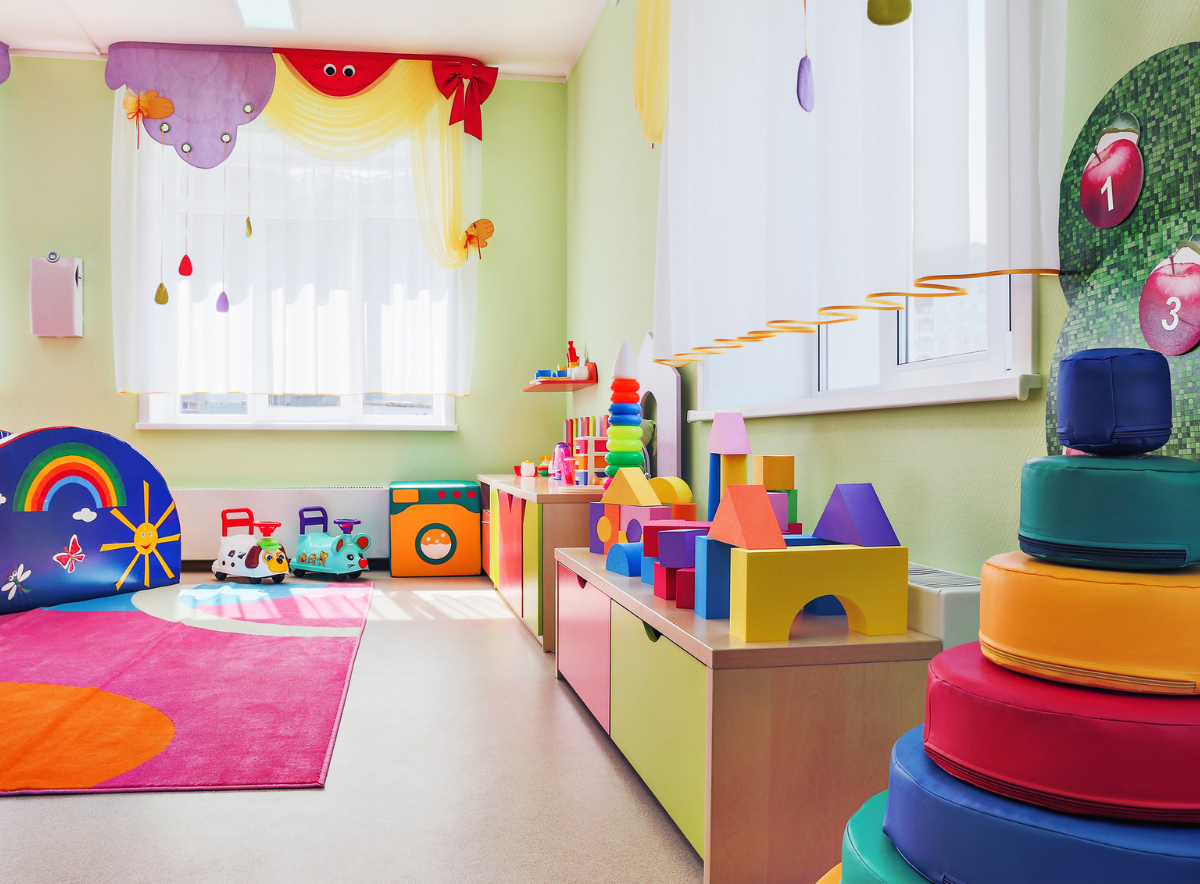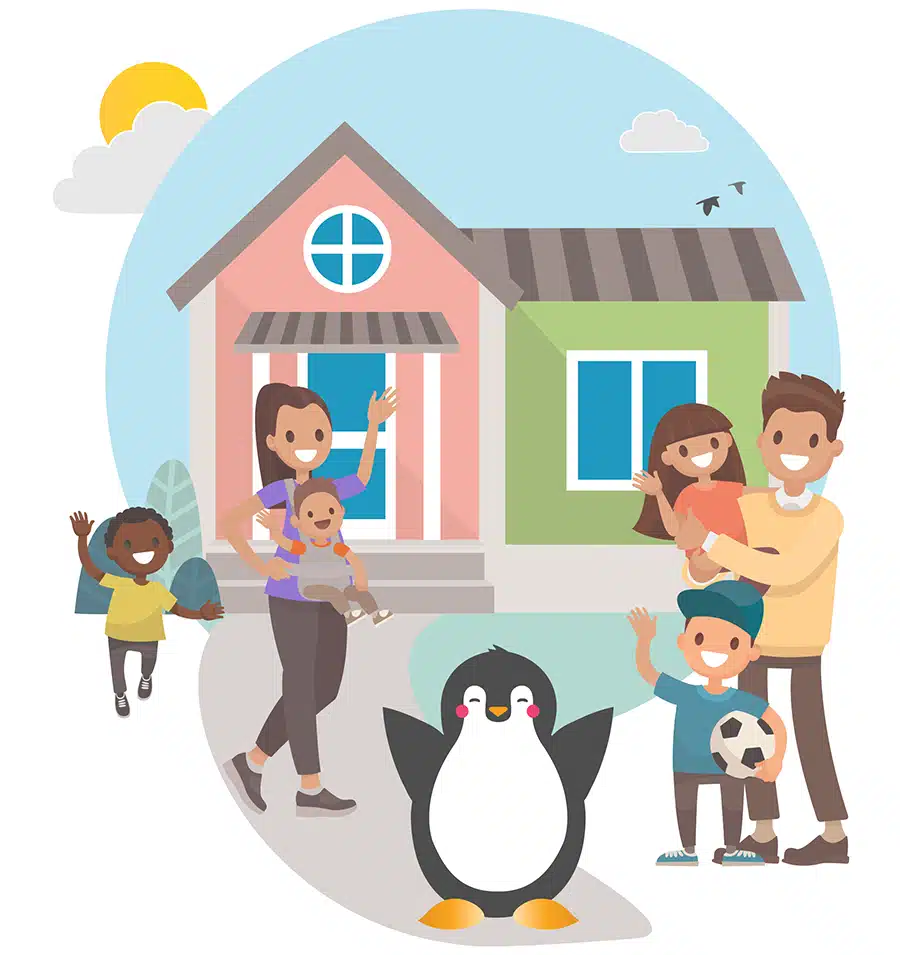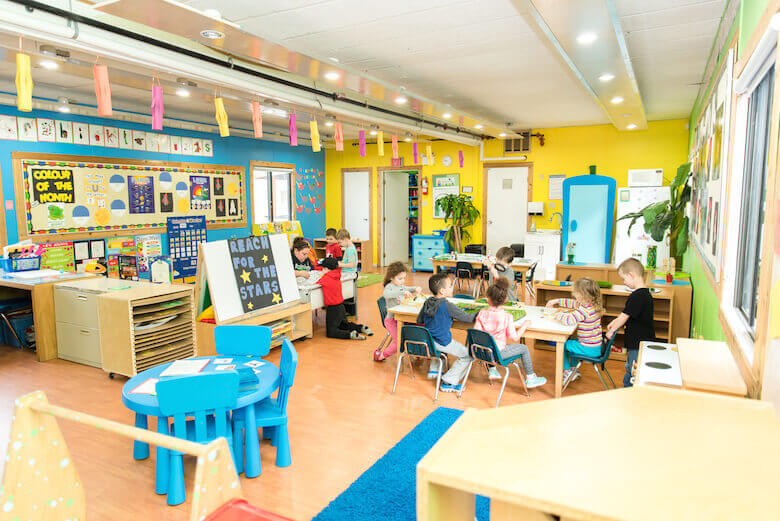How Child Care Near Me Boosts Development Through Structured Play
The Function of Childcare in Fostering Social Skills and Early Understanding
Day care functions as a considerable setting for little ones, assisting in vital social interactions that advertise early understanding. In this structured setting, youngsters involve with peers and caregivers, developing necessary communication and teamwork skills. As they navigate play and different tasks, they learn to resolve conflicts and build emotional intelligence. Comprehending the nuances of these interactions exposes the profound influence daycare has on a youngster's advancement, forming their future relationships and academic readiness. What certain abilities do youngsters acquire in this setup?
The Relevance of Social Communication in Day Care
While several parents identify the significance of very early childhood education and learning, the duty of social communication in daycare is frequently ignored. Daycare setups supply youngsters with invaluable possibilities to involve with peers, cultivating important social skills. During these formative years, kids find out to browse various social characteristics, such as sharing, cooperation, and dispute resolution. Interacting with diverse age and personalities improves their ability to adjust to various settings and establish empathy in the direction of others.

Structure Interaction Abilities With Play
Play works as an effective tool for children to build vital interaction skills in childcare settings. With numerous play tasks, kids talk, express their ideas, and learn to listen to others. Parlor games, as an example, urge them to use language in different contexts, advertising vocabulary growth and understanding of social hints.

Narration during playtime enables kids to communicate ideas and feelings, helping them establish narrative skills and self-confidence in their verbal expressions. Overall, play not just serves as a satisfying pastime yet also as an essential system for establishing the interaction abilities needed for successful social communications in later life.
Urging Teamwork and Synergy
Participation and synergy are vital abilities that children can cultivate in day care environments. Via different team activities, such as constructing projects or collective video games, children learn to share duties and job toward typical objectives. These communications foster an understanding of the value of listening to others, negotiating duties, and jeopardizing when required.
In day care settings, caretakers often create possibilities for kids to engage in synergy by urging them to get involved in group jobs. This not just assists kids develop social bonds but also grows a feeling of belonging and area.
As they browse these cooperative experiences, youngsters acquire important understandings right into the dynamics of collaborating with peers. They find out to appreciate varied viewpoints and acknowledge that each member contributes distinctively to the team initiative. Ultimately, these very early lessons together and synergy prepared imp source for much healthier relationships and reliable collaboration in future social and academic setups.
Structured Discovering Activities and Cognitive Development
Structured understanding tasks play an indispensable role in fostering cognitive development in young kids (Child Care Center). These tasks, which consist of problems, narration, and hands-on experiments, stimulate essential thinking and problem-solving abilities. In a daycare setting, organized understanding motivates kids to involve with their peers, enhancing their capacity to process information and recognize various principles
Via assisted play and interactive tasks, children create fundamental abilities such as numeracy and literacy. Tasks centered around numbers can help children understand mathematical principles, while storytelling boosts language purchase and comprehension. Furthermore, structured knowing enables teachers to assess developmental development and dressmaker tasks to private knowing requirements.

Incorporating a varied array of organized tasks not only promotes cognitive development yet additionally prepares kids for future academic success. By offering a well balanced setting that promotes exploration and inquiry, daycare programs play an important role fit the cognitive capacities of young students.
Promoting Emotional Knowledge and Self-confidence
Emotional knowledge and self-confidence are vital components of a child's growth, matching the cognitive abilities cultivated with structured learning tasks. In day care settings, youngsters are offered with opportunities click here to read to share their emotions and take part in social interactions, which are critical for constructing emotional recognition. Through led play and group tasks, children discover to identify their sensations, identify those of others, and create empathy.
In addition, interaction with caregivers and peers aids to cultivate self-esteem and durability. Favorable reinforcement and support from adults equip youngsters to take risks and face obstacles, fostering a feeling of success. As they navigate social characteristics, youngsters build self-confidence in their capacities to interact, work together, and deal with problems - Daycare North York. This nurturing atmosphere permits the gradual advancement of psychological knowledge, which is important for future social relationships and general health. Because of this, day care plays a substantial role in promoting both psychological knowledge and confidence in kids
Frequently Asked Questions
Exactly How Can Moms And Dads Pick the Right Daycare for Their Kid?
Parents ought to think about aspects such as area, staff credentials, safety and security standards, curriculum, and evaluates from various other moms and dads when choosing the ideal day care for their kid, ensuring it lines up with their kid's developmental needs and family values.
What Age Is Best for Beginning Childcare?

How Does Childcare Effect Children's Actions in your home?
Daycare commonly positively affects children's habits in the house by boosting social skills, advertising independence, and motivating emotional guideline (Child Care Center). Therefore, kids might exhibit enhanced interaction and cooperation, causing even more harmonious family characteristics
Are There Any Type Of Disadvantages to Daycare Participation?
Yes, there are disadvantages to day care presence, including possible separation anxiety, exposure to health problems, and inconsistent caregiving. These aspects can influence a youngster's emotional well-being and adjustment in your home, affecting total family members characteristics.
Just How Can Moms And Dads Assistance Social Abilities Found Out at Childcare?
Moms and dads can sustain social abilities found out at daycare by facilitating playdates, encouraging cooperative activities, modeling positive communications, discussing sensations, and enhancing sharing and interaction in the house, therefore boosting their youngster's social growth and self-confidence.
Childcare offers as a considerable atmosphere for young children, helping with important social interactions that advertise very early understanding. Day care settings offer children with vital possibilities to involve with peers, promoting necessary social skills. Play serves as an effective tool for kids to develop vital communication skills in childcare setups. In day care settings, youngsters are given with chances to express their feelings and involve in social interactions, which are crucial for Learn More Here building psychological understanding. Childcare often favorably influences kids's actions at home by improving social skills, advertising self-reliance, and encouraging emotional regulation.